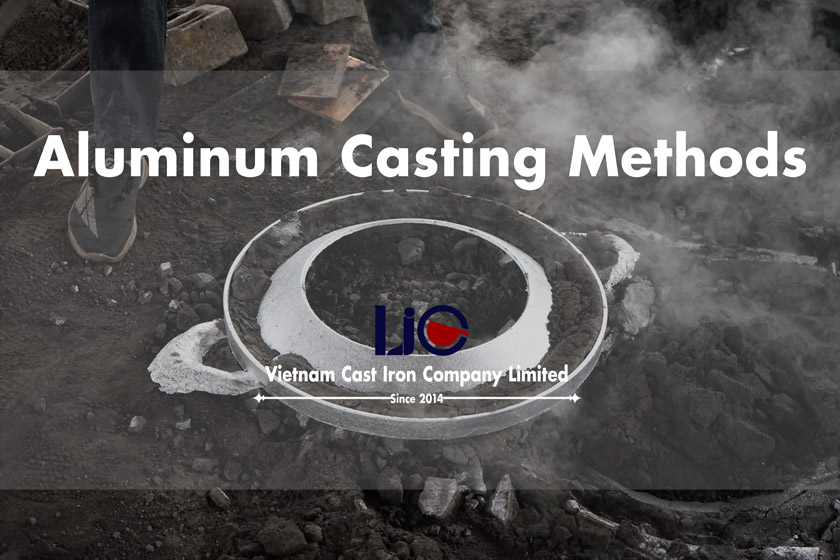The Buzz on Alcast Company
The Buzz on Alcast Company
Blog Article
The Ultimate Guide To Alcast Company
Table of Contents5 Easy Facts About Alcast Company ExplainedThe Single Strategy To Use For Alcast CompanyAn Unbiased View of Alcast CompanyAlcast Company Fundamentals ExplainedWhat Does Alcast Company Mean?Alcast Company Things To Know Before You Get This
The refined distinction hinges on the chemical web content. Chemical Comparison of Cast Aluminum Alloys Silicon promotes castability by lowering the alloy's melting temperature level and improving fluidity during casting. It plays an essential duty in permitting intricate molds to be filled up precisely. Additionally, silicon adds to the alloy's toughness and put on resistance, making it beneficial in applications where resilience is vital, such as auto components and engine parts.It likewise improves the machinability of the alloy, making it much easier to refine right into finished products. In this way, iron adds to the overall workability of light weight aluminum alloys. Copper boosts electric conductivity, making it advantageous in electric applications. It additionally improves corrosion resistance and includes in the alloy's overall strength.
Manganese contributes to the toughness of aluminum alloys and enhances workability. Magnesium is a lightweight aspect that provides stamina and influence resistance to aluminum alloys.
Not known Facts About Alcast Company
Zinc enhances the castability of light weight aluminum alloys and assists manage the solidification procedure throughout spreading. It boosts the alloy's toughness and solidity.

The main thermal conductivity, tensile toughness, yield toughness, and elongation vary. Amongst the above alloys, A356 has the highest thermal conductivity, and A380 and ADC12 have the least expensive.
The Definitive Guide to Alcast Company

In precision casting, 6063 is well-suited for applications where complex geometries and premium surface area coatings are paramount. Instances include telecommunication units, where the alloy's superior formability allows for sleek and visually pleasing layouts while maintaining structural stability. In the Lighting Solutions market, precision-cast 6063 parts develop elegant and reliable illumination fixtures that call for intricate forms and good thermal performance.
The A360 exhibits premium prolongation, making it ideal for complex Your Domain Name and thin-walled parts. In precision spreading applications, A360 is well-suited for industries such as Customer Electronic Devices, Telecommunication, and Power Devices.
See This Report on Alcast Company
Its unique homes make A360 a useful option for accuracy spreading in these markets, improving product durability and top quality. Foundry. Aluminum alloy 380, or A380, is a widely used casting alloy with several distinctive characteristics.
In precision casting, light weight aluminum 413 radiates in the Consumer Electronic Devices and Power Equipment industries. This alloy's premium rust resistance makes it an outstanding choice for exterior applications, guaranteeing long-lasting, durable items in the discussed industries.
Alcast Company for Beginners
The light weight aluminum alloy you pick will substantially impact both the casting process and the buildings of the last item. Because of this, you must make your choice meticulously and take an educated method.
Determining the most suitable aluminum alloy for your application will mean weighing a wide array of characteristics. These relative alloy attributes adhere to the North American Pass Away Spreading Association's guidelines, and we've divided them right into 2 groups. The very first classification addresses alloy qualities that affect the manufacturing procedure. The 2nd covers attributes impacting the buildings of the last product.
Things about Alcast Company
The alloy you pick for die casting straight affects a number of facets of the casting procedure, like how simple the alloy is to work with and if it is susceptible to casting issues. Hot fracturing, also called solidification cracking, is a common die spreading problem for light weight aluminum alloys that can result in interior or surface-level rips or cracks.
Specific light weight aluminum alloys are more prone to warm cracking than others, and your choice must consider this. An additional common flaw located in the die spreading of aluminum is die soldering, which is when the actors adheres to the die wall surfaces and makes ejection challenging. It can harm both the actors and the die, so you should search for alloys with high anti-soldering residential or commercial properties.
Rust resistance, which is currently a noteworthy quality of light weight aluminum, can differ substantially from alloy to alloy and is an important characteristic to consider depending on the environmental conditions your item will certainly be revealed to (aluminum casting manufacturer). Use resistance is one more residential or commercial property typically sought in aluminum products and can set apart some alloys
Report this page